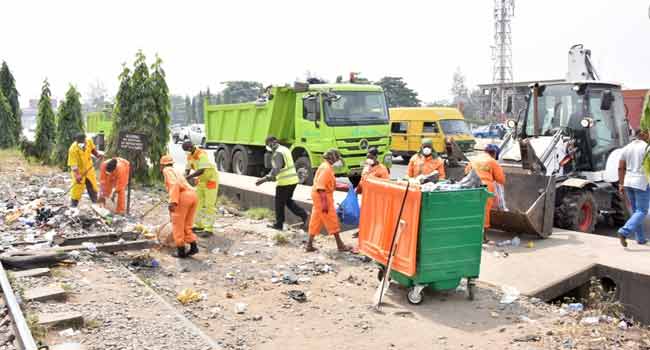The Federal Government has commenced the implementation of the Extended Producer Responsibility Programme (EPR) which is focused on the life cycle management of waste from cradle to cradle with a view to achieving zero waste tolerance level in Nigeria.
At the official launch and inception meeting of the Global Environment Fund (GEF)/ United Nations Environment Programme (UNEP) in collaboration with the National Environmental Standards and Regulations Enforcement Agency(NESREA) recently, Federal Controller of Environment in Lagos State, Mrs Oluwatoyin Agbenla, said the project implementation was solely intended for the good of the environment and benefit of all Nigerians.
“‘This project is apt, considering the volume of waste being generated and the need to use waste as a resource to grow the economy and generate employment along the waste value chain”, she stated.
She said concern about waste arose from the fact that it contained thousands of hazardous substances, which are released into the environment from the prevalent crude recycling practices where cables are burnt openly; Cathode Ray Tubes (CRT) and other parts are broken and processed to extract copper, other precious materials such as gold, diamond, etc.
Mrs Agbenla noted that about 500,000 used computers are imported into the country annually through the Lagos port and that only 25 per cent were functional used electronics while the remaining 75 per cent were junk or unserviceable.
According to her, the intervention of GEF is to stimulate the development of sustainable circular economy for the end-of-life electronic products in Nigeria, including the treatment and management of e-waste.
Earlier, the Director-General/CEO of NESREA, Prof Aliyu Jauro, while welcoming the representatives comprising NGO’s, environmental consultants, recyclers and collectors, the academia and UN agencies, said the objective for starting the programme was to adopt financially self-sustaining circular economy approaches for electronics.
While noting that the United Nations Environment Programme (UNEP) is the implementing agency and NESREA is the executing agency, Jauro said an operational guideline for the implementation of the scheme was developed in 2014 with roles and responsibilities for all stakeholders clearly spelt out.
He added that the global environment benefit will be through direct interventions on e-waste management in Nigeria with the disposal or removal of Persistent organic pollutants s and mercury.

 Join Daily Trust WhatsApp Community For Quick Access To News and Happenings Around You.
Join Daily Trust WhatsApp Community For Quick Access To News and Happenings Around You.


